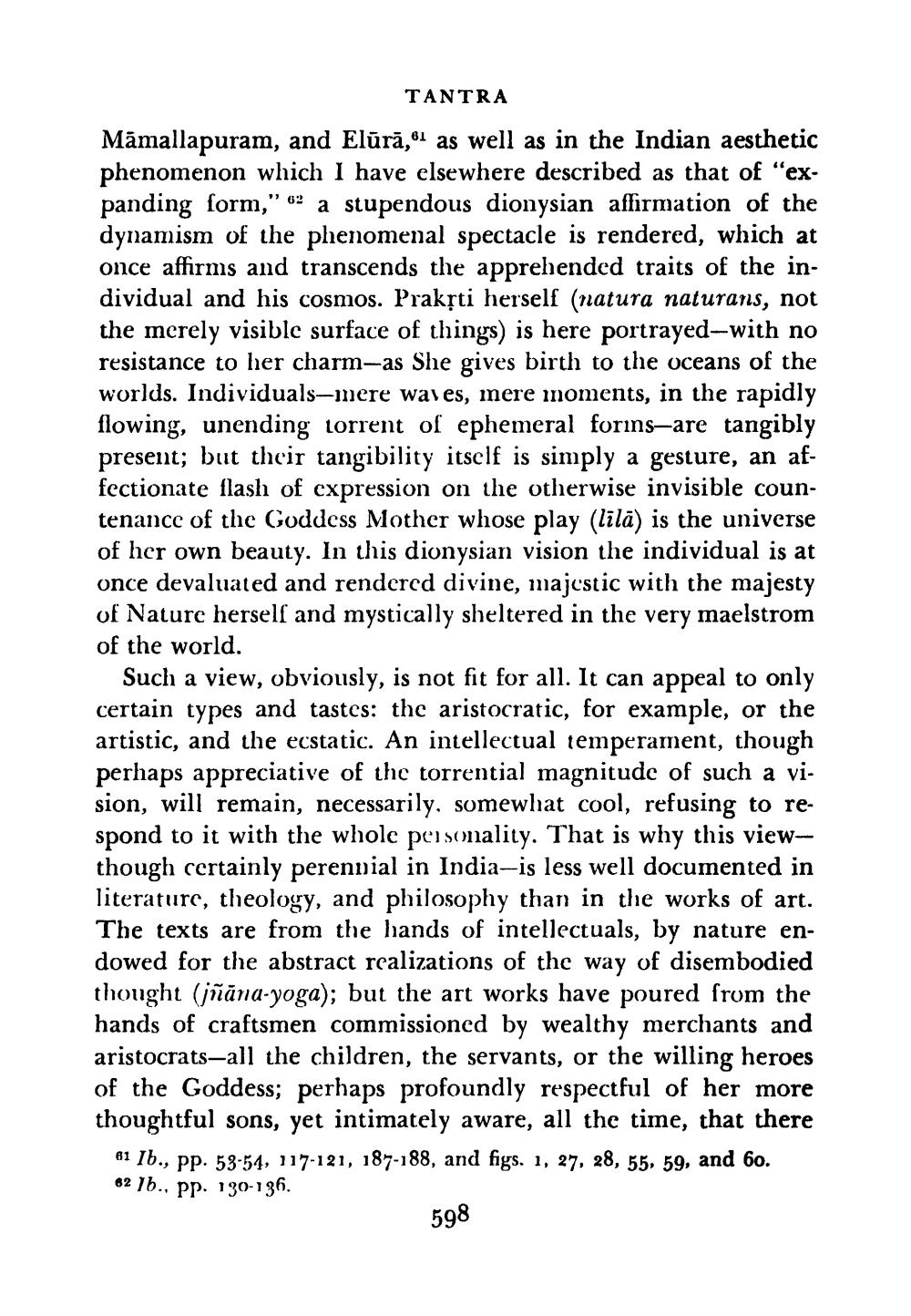________________
TANTRA
Māmallapuram, and Elūrā,as well as in the Indian aesthetic phenomenon which I have elsewhere described as that of "expanding form," 6% a stupendous dionysian affirmation of the dynamism of the phenomenal spectacle is rendered, which at once affirms and transcends the apprehended traits of the individual and his cosmos. Praksti herself (natura naturans, not the merely visible surface of things) is here portrayed-with no resistance to her charm-as She gives birth to the oceans of the worlds. Individuals-mere waves, mere moments, in the rapidly flowing, unending torrent of ephemeral forins-are tangibly present; but their tangibility itself is simply a gesture, an affectionate flash of expression on the otherwise invisible countenance of the Goddess Mother whose play (līlā) is the universe of her own beauty. In this dionysian vision the individual is at once devaluated and rendered divine, majestic with the majesty of Nature herself and mystically sheltered in the very maelstrom of the world.
Such a view, obviously, is not fit for all. It can appeal to only certain types and tastes: the aristocratic, for example, or the artistic, and the ecstatic. An intellectual temperament, though perhaps appreciative of the torrential magnitude of such a vision, will remain, necessarily, somewhat cool, refusing to respond to it with the whole personality. That is why this viewthough certainly perennial in India-is less well documented in literature, theology, and philosophy than in the works of art. The texts are from the lands of intellectuals, by nature endowed for the abstract realizations of the way of disembodied thought (jñāna-yoga); but the art works have poured from the hands of craftsmen commissioned by wealthy merchants and aristocrats—all the children, the servants, or the willing heroes of the Goddess; perhaps profoundly respectful of her more thoughtful sons, yet intimately aware, all the time, that there
61 lb., pp. 53-54, 117-121, 187-188, and figs. 1, 27, 28, 55, 59, and 60. 62 16., pp. 130-136.
598




